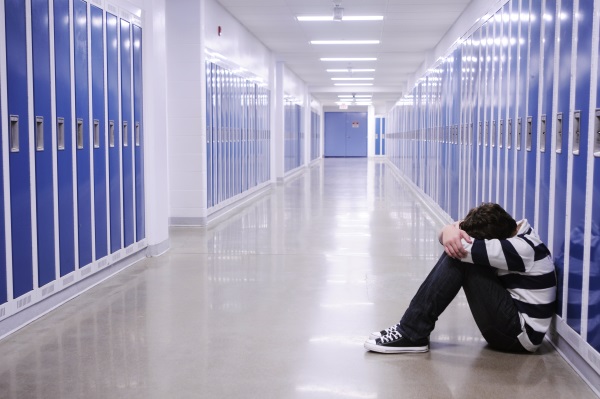We have a duty to ensure that all pupils can learn without prejudice, but recent statistics prove that there's still work to be done.

A few years ago we took part in a project co-led by the Anti-Bullying Alliance and World of Inclusion to challenge disablist bullying in schools. In all my time working in education, I never met anyone who would not condemn disablist bullying or discrimination as abhorrent.
However, the distinction between those who would characterise a lot of it as ‘banter’ and others who would label it as a form of abuse is becoming more pronounced. How can this be the case?
I have previously written about the extent of disablist bullying in schools. Two years on, it’s saddening to see that so little has changed.
In fact, the picture would appear to be even bleaker. Recent analysis revealed that approximately 82 per cent of children and young people with a learning disability have been victims of bullying, 32 per cent on a daily or weekly basis.
The opportunity to work with another school recently on equality and disability gave me the chance to rethink what we do at Priestnall to challenge discriminatory attitudes and promote equality. Most importantly, it reminded me that schools should be regularly reviewing what equality looks like.
The Equality Act (2010) introduced a single equality duty on public bodies which is extended to include all protected characteristics: race, sex, age, religion or belief, sexual orientation, pregnancy and maternity/paternity, disability and gender reassignment.
Disablist bullying is not limited to children. Adults with disabilities can also be the victims of bullying. The bullying can occur in a work environment, at a centre or group home, or online. Disablist bullying is more likely to be by strangers.
Promoting equal opportunity is a needs-based approach; imposing a one size fits all system will not work. It is also worth considering that ‘blanket policies’ are most likely illegal.
Some ways to build on anti-discriminatory work in your school can be through:
One of the most valuable things I think schools can do more of is to ensure that all lessons, assemblies and discussions are representative of every pupil.
For example, does the school library offer an inclusive selection of books? Do maths lessons use images that represent everyone? Are our school council’s representative?
In order to foster better relationships, we need to tackle prejudice and promote a better understanding of the differences that make us great. For schools, this means:
When leading conversations on these issues, it’s important to keep in mind the medical and social models of thinking:
| Medical model of thinking | Social model of thinking |
|---|---|
| Person is faulty | Person is valued |
| Diagnosis of strengths and needs | Self-definition of strengths and needs |
| Labelling | Identify barriers and develop solutions |
| Impairment becomes focus of attention | Outcome-based programme designed |
| Assessment, monitoring, programmes of therapy imposed | Resources are made available to ordinary services |
| Segregation and alternative services | Disability equality training for all |
| Ordinary needs are put on hold | Encourage social relationships |
| Re-entry if 'normal' enough or permanent exclusion | Disabled person is welcomed and included |
| Society remains unchanged | Society advances |
Adapted from Micheline Mason (1994) and R. Rieser (2005)
By adopting a social model of thinking, we don't fall into the trap of trying to 'normalise' an individual to fit circumstances. Instead, we aim for the opposite: working collaboratively to adapt circumstances in favour of the individuals. An approach based on solutions, not problems.
Doing nothing differently isn't an option. As SENCOs, teachers and school leaders, we have a duty to be proactive when it comes to tackling discrimination in our classrooms and playgrounds.
It's important to bear in mind our legal responsibilities, and how collective efforts can make an impact on individual pupils.
Police services across the UK have estimated that 450 reported hate crimes took place against disabled children last year, up from 181 in 2014-5. But we can change that.
Are you doing your bit?